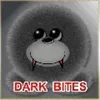Darkwave; ebm; futurepop; gothic; electropop; synth-pop; alternative Live Radio Stations
Radio Stations
Choose a Genre
Exploring the Dark and Electronic: A Deep Dive into Alternative Music Genres
For those seeking an escape from mainstream pop and rock, genres like Darkwave, EBM, Futurepop, Gothic, Electropop, Synth-pop, and Alternative offer a unique and immersive sonic experience. These styles, while distinct, share a deep-rooted connection through their use of synthesizers, atmospheric soundscapes, and a passion for pushing musical boundaries.
Darkwave: The Sound of Shadows
Emerging in the 1980s, Darkwave is characterized by its moody, introspective soundscapes and is often associated with goth culture. With ethereal synthesizers, melancholic melodies, and poetic lyrics, artists like Clan of Xymox, The Frozen Autumn, and Lycia have defined the genre.
EBM (Electronic Body Music): Industrial Beats and Political Themes
A more aggressive electronic genre, Electronic Body Music (EBM) originated in Europe during the 1980s, blending industrial influences with danceable beats and distorted vocals. Known for its high-energy, militant rhythms, acts like Front 242, Nitzer Ebb, and DAF have shaped the genre.
Futurepop: Uplifting Sounds of the Future
A fusion of EBM, synth-pop, and trance, Futurepop emerged in the late 1990s, characterized by melodic, upbeat music with positive and futuristic themes. Bands like VNV Nation, Apoptygma Berzerk, and Covenant pioneered the genre, making it a favorite in alternative electronic dance scenes.
Gothic Music: The Darkly Poetic Realm
Gothic music dates back to the late 1970s and early 1980s, closely tied to post-punk and goth subculture. Known for its haunting melodies, introspective lyrics, and dramatic instrumentals, artists such as The Sisters of Mercy, Bauhaus, and The Cure remain legendary figures in the scene.
Electropop & Synth-pop: The Catchy Side of Electronic Music
Electropop merges electronic dance music (EDM) with pop, featuring catchy hooks and upbeat rhythms. Artists like Ladytron, CHVRCHES, and Goldfrapp have brought electropop into the mainstream.
Synth-pop, born in the late 1970s and 1980s, heavily relies on synthesizers and drum machines to create melodic, futuristic tunes. Iconic acts include Depeche Mode, New Order, and Pet Shop Boys.
Alternative: A Broad Spectrum of Non-Mainstream Sounds
The term Alternative music encompasses a diverse range of experimental and non-commercial styles, evolving from indie rock and post-punk movements. Whether it’s radio-friendly alternative rock or underground electronic music, this genre has consistently challenged mainstream norms.
Alternative Music on Radio: A Gateway to the Underground
Radio stations dedicated to these genres offer an escape from commercial pop, featuring:
🎧 Music from Iconic & Emerging Artists – From classic legends to rising stars.
🎤 Exclusive Interviews & Features – Insights from musicians and industry figures.
📅 Concert & Festival Announcements – Keeping fans updated on upcoming events.
📡 Online Streaming & Mobile Apps – Access from anywhere in the world.
For listeners seeking melancholy atmospheres, industrial beats, or synth-driven anthems, these alternative genres provide a compelling and immersive musical journey. Whether through radio, streaming services, or live events, this diverse spectrum of sound continues to captivate and inspire audiences worldwide.
For those seeking an escape from mainstream pop and rock, genres like Darkwave, EBM, Futurepop, Gothic, Electropop, Synth-pop, and Alternative offer a unique and immersive sonic experience. These styles, while distinct, share a deep-rooted connection through their use of synthesizers, atmospheric soundscapes, and a passion for pushing musical boundaries.
Darkwave: The Sound of Shadows
Emerging in the 1980s, Darkwave is characterized by its moody, introspective soundscapes and is often associated with goth culture. With ethereal synthesizers, melancholic melodies, and poetic lyrics, artists like Clan of Xymox, The Frozen Autumn, and Lycia have defined the genre.
EBM (Electronic Body Music): Industrial Beats and Political Themes
A more aggressive electronic genre, Electronic Body Music (EBM) originated in Europe during the 1980s, blending industrial influences with danceable beats and distorted vocals. Known for its high-energy, militant rhythms, acts like Front 242, Nitzer Ebb, and DAF have shaped the genre.
Futurepop: Uplifting Sounds of the Future
A fusion of EBM, synth-pop, and trance, Futurepop emerged in the late 1990s, characterized by melodic, upbeat music with positive and futuristic themes. Bands like VNV Nation, Apoptygma Berzerk, and Covenant pioneered the genre, making it a favorite in alternative electronic dance scenes.
Gothic Music: The Darkly Poetic Realm
Gothic music dates back to the late 1970s and early 1980s, closely tied to post-punk and goth subculture. Known for its haunting melodies, introspective lyrics, and dramatic instrumentals, artists such as The Sisters of Mercy, Bauhaus, and The Cure remain legendary figures in the scene.
Electropop & Synth-pop: The Catchy Side of Electronic Music
Electropop merges electronic dance music (EDM) with pop, featuring catchy hooks and upbeat rhythms. Artists like Ladytron, CHVRCHES, and Goldfrapp have brought electropop into the mainstream.
Synth-pop, born in the late 1970s and 1980s, heavily relies on synthesizers and drum machines to create melodic, futuristic tunes. Iconic acts include Depeche Mode, New Order, and Pet Shop Boys.
Alternative: A Broad Spectrum of Non-Mainstream Sounds
The term Alternative music encompasses a diverse range of experimental and non-commercial styles, evolving from indie rock and post-punk movements. Whether it’s radio-friendly alternative rock or underground electronic music, this genre has consistently challenged mainstream norms.
Alternative Music on Radio: A Gateway to the Underground
Radio stations dedicated to these genres offer an escape from commercial pop, featuring:
🎧 Music from Iconic & Emerging Artists – From classic legends to rising stars.
🎤 Exclusive Interviews & Features – Insights from musicians and industry figures.
📅 Concert & Festival Announcements – Keeping fans updated on upcoming events.
📡 Online Streaming & Mobile Apps – Access from anywhere in the world.
For listeners seeking melancholy atmospheres, industrial beats, or synth-driven anthems, these alternative genres provide a compelling and immersive musical journey. Whether through radio, streaming services, or live events, this diverse spectrum of sound continues to captivate and inspire audiences worldwide.
